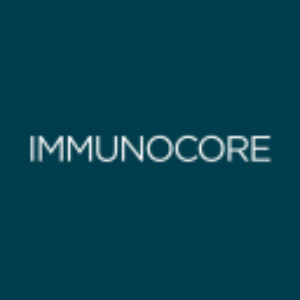EORTC and Immunocore announce enrolment of first patient onto the only active Phase 3 adjuvant trial in uveal melanoma
Rhea-AI Summary
Immunocore (NASDAQ: IMCR) and EORTC have initiated the first Phase 3 Adjuvant Trial in Ocular Melanoma (ATOM), enrolling their first patient. The trial aims to evaluate if tebentafusp can prevent or delay relapse in high-risk uveal melanoma patients after primary treatment, compared to observation.
The open-label, international, multicenter trial will enroll 290 HLA-A*02:01-positive patients who have undergone surgery or radiotherapy. Participants will be randomized 1:1 to receive either tebentafusp for six months or observation. The study will assess overall survival, safety, tolerability, and explore ctDNA as a marker of residual disease.
Tebentafusp (KIMMTRAK®) is currently approved in 38 countries for treating HLA-A*02:01-positive adult patients with unresectable or metastatic uveal melanoma.
Positive
- First and only active Phase 3 adjuvant trial for uveal melanoma
- Tebentafusp already approved in 38 countries for metastatic uveal melanoma
- Addresses significant unmet medical need with 50% relapse rate
Negative
- Six-month treatment duration may limit long-term efficacy
- Trial to HLA-A*02:01-positive patients only
News Market Reaction – IMCR
On the day this news was published, IMCR declined 3.39%, reflecting a moderate negative market reaction.
Data tracked by StockTitan Argus on the day of publication.
ATOM is the only active Phase 3 trial for adjuvant treatment of uveal melanoma
The trial will assess whether adjuvant treatment with tebentafusp can decrease the risk of relapse, compared to observation
(OXFORDSHIRE, England & CONSHOHOCKEN, Penn. & ROCKVILLE, Md., US, 11 December 2024) The European Organisation for Research and Treatment of Cancer (EORTC), an independent clinical cancer research organization focusing on improving the standards of cancer treatments for patients to prolong survival and improve quality of life, and Immunocore Holdings plc (Nasdaq: IMCR) (“Immunocore” or the “Company”), a commercial-stage biotechnology company pioneering and delivering transformative immunomodulating medicines to radically improve outcomes for patients with cancer, infectious diseases and autoimmune diseases, today announce the randomization of the first patient in the Phase 3 Adjuvant Trial in Ocular Melanoma (ATOM), investigating the safety and efficacy of tebentafusp as adjuvant treatment for uveal melanoma.
The primary objective of the open-label, international, multicenter trial – led by EORTC – will be to assess whether tebentafusp can prevent or delay relapse in patients with primary ocular (uveal) melanoma at high risk of relapse, as compared with observation. Tebentafusp is approved for the treatment of HLA-A*02:01-positive adult patients with unresectable or metastatic uveal melanoma in 38 countries, under the brand name KIMMTRAK®.
“I am delighted that the first patient on ATOM has been recruited. This milestone reflects a very significant effort by the EORTC melanoma group trials team, colleagues at Immunocore and our trial sites,” said Professor Paul Nathan, ATOM study coordinator. “The study addresses a key question - whether the benefit seen with tebentafusp in HLA-A*02:01-positive patients with metastatic uveal melanoma will translate to a significant reduction in risk of relapse for patients who have received treatment for primary uveal melanoma and are at high risk of relapse.”
The trial is expected to enroll 290 HLA-A*02:01-positive patients with uveal melanoma who have undergone definitive treatment by surgery or radiotherapy. Eligible patients will be randomized 1:1 to one of two arms: tebentafusp [as monotherapy] for six months or until disease relapse, or observation. Secondary objectives include overall survival, safety and tolerability, while exploratory objectives include evaluation of circulating tumor DNA (ctDNA) as a marker of residual disease, and a comparison of health-related quality of life.
Mohammed Dar, Chief Medical Officer at Immunocore, said: “Despite definitive local therapy, approximately
###
About the ATOM Phase 3 trial
ATOM (NCT06246149; 2023-510333-28-00) is an EORTC-led randomized open-label international multicenter Phase 3 superiority clinical trial aiming to prospectively assess whether adjuvant treatment with tebentafusp improves relapse-free survival as compared with observation. A total of 290 patients are expected to be enrolled within a span of three years, beginning in 13 countries, and with the potential for further expansion.
The goal of the experimental treatment strategy in the trial is to establish whether adjuvant tebentafusp can decrease the risk of relapse – compared to observation – in patients who have undergone definitive treatment for primary uveal melanoma and who are at high risk of relapse.
Patients included in the study must have undergone definitive treatment for primary ocular melanoma, by surgery or radiotherapy; be at high risk of relapse; be HLA-A*02:01 positive; have a good performance status (ECOG 0/1); and adequate organ function. Eligible patients will be randomized 1:1 to receive either active treatment with weekly tebentafusp [as monotherapy], or observation. Patients will receive tebentafusp for 6 months, or until relapse.
The secondary objectives are to compare overall survival and to further document the safety and tolerability of tebentafusp.
The exploratory objectives include the comparison of the health-related quality of life between the treatment arms and the evaluation of the role of circulating tumor DNA (ctDNA) as a biomarker for the presence of residual disease.
About Uveal Melanoma
Uveal melanoma is a rare disease arising from the pigmented uveal tract of the eye with an estimated incidence in Europe of 4.4 cases per million1. Up to
Very few studies have tested the use of adjuvant treatment in uveal melanoma, and none have resulted in any change in the standard of care, reflecting a lack of active agents for this disease.
About ImmTAC® molecules for cancer
Immunocore’s proprietary T cell receptor (TCR) technology generates a novel class of bispecific biologics called ImmTAC (Immune mobilizing monoclonal TCRs Against Cancer) molecules that are designed to redirect the immune system to recognize and kill cancerous cells. ImmTAC molecules are soluble TCRs engineered to recognize intracellular cancer antigens with ultra-high affinity and selectively kill these cancer cells via an anti-CD3 immune-activating effector function. Based on the demonstrated mechanism of T cell infiltration into human tumors, the ImmTAC mechanism of action holds the potential to treat hematologic and solid tumors, regardless of mutational burden or immune infiltration, including immune “cold” low mutation rate tumors.
About EORTC
The European Organisation for Research and Treatment of Cancer (EORTC) is an academic clinical research organisation, which unites clinical cancer research experts across the globe to define better treatments for cancer patients to prolong survival and improve quality of life. Both international and multidisciplinary, EORTC’s network comprises over 3400 collaborators involved in cancer treatment and research in 917 institutions across 50 countries. Conducting translational research, and phase 2 and 3 trials, EORTC offers an integrated approach to therapeutic strategies and quality of life. EORTC Headquarters, a unique international clinical research infrastructure, are based in Brussels, Belgium, from where its various activities are coordinated and run.
For further information, please visit the EORTC website: www.eortc.org
About Immunocore
Immunocore is a commercial-stage biotechnology company pioneering the development of a novel class of TCR bispecific immunotherapies called ImmTAX – Immune mobilizing monoclonal TCRs Against X disease – designed to treat a broad range of diseases, including cancer, autoimmune, and infectious disease. Leveraging its proprietary, flexible, off-the-shelf ImmTAX platform, Immunocore is developing a deep pipeline in multiple therapeutic areas, including nine active clinical and pre-clinical programs in oncology, infectious diseases, and autoimmune diseases. The Company’s most advanced oncology TCR therapeutic, KIMMTRAK has been approved for the treatment of HLA-A*02:01-positive adult patients with unresectable or metastatic uveal melanoma in the United States, European Union, Canada, Australia, and the United Kingdom.
Immunocore Forward Looking Statements
This press release contains “forward-looking statements” within the meaning of the safe harbor provisions of the Private Securities Litigation Reform Act of 1995. Words such as “may,” “will,” “believe,” “expect,” “plan,” “anticipate,” “estimate,” and similar expressions (as well as other words or expressions referencing future events or circumstances) are intended to identify forward-looking statements. All statements, other than statements of historical facts, included in this press release are forward-looking statements. These statements include, but are not limited to, statements regarding the marketing and therapeutic potential of KIMMTRAK for mUM; the expected clinical benefits of KIMMTRAK and the Company’s other product candidates, including the prevention or delay of relapse for patients with primary uveal melanoma; the value proposition of Immunocore’s product candidates, including KIMMTRAK, including expectations regarding the potential patient population and market opportunity; future development plans of KIMMTRAK; and expectations regarding the design, progress, timing, scope and results of Immunocore’s existing and planned clinical trials, including the ATOM trial and its potential for further expansion. Any forward-looking statements are based on management’s current expectations and beliefs of future events and are subject to a number of risks and uncertainties that could cause actual events or results to differ materially and adversely from those set forth in or implied by such forward-looking statements, many of which are beyond the Company’s control. These risks and uncertainties include, but are not limited to, the impact of worsening macroeconomic conditions on the Company’s business, financial position, strategy and anticipated milestones, including Immunocore’s ability to conduct ongoing and planned clinical trials; Immunocore’s ability to obtain a clinical supply of current or future product candidates or commercial supply of KIMMTRAK or any future approved products, including as a result of health epidemics or pandemics, war in Ukraine, the conflict in the Middle East, or global geopolitical tension; Immunocore’s ability to obtain and maintain regulatory approval of its product candidates, including KIMMTRAK; Immunocore’s ability and plans in continuing to establish and expand a commercial infrastructure and to successfully launch, market and sell KIMMTRAK and any future approved products; Immunocore’s ability to successfully expand the approved indications for KIMMTRAK or obtain marketing approval for KIMMTRAK in additional geographies in the future; the delay of any current or planned clinical trials, whether due to patient enrolment delays or otherwise; Immunocore’s ability to successfully demonstrate the safety and efficacy of its product candidates and gain approval of its product candidates on a timely basis, if at all; competition with respect to market opportunities; unexpected safety or efficacy data observed during preclinical studies or clinical trials; actions of regulatory agencies, which may affect the initiation, timing and progress of clinical trials or future regulatory approval; Immunocore’s need for and ability to obtain additional funding, on favourable terms or at all, including as a result of worsening macroeconomic conditions, including inflation, interest rates and unfavourable general market conditions, and the impacts thereon of the war in Ukraine, conflict in the Middle East, and global geopolitical tension; Immunocore’s ability to obtain, maintain and enforce intellectual property protection for KIMMTRAK or any of its product candidates it or its collaborators are developing; and the success of Immunocore’s current and future collaborations, partnerships or licensing arrangements. These and other risks and uncertainties are described in greater detail in the section titled "Risk Factors" in Immunocore’s filings with the Securities and Exchange Commission, including Immunocore’s most recent Annual Report on Form 10-K for the year ended December 31, 2023 filed with the Securities and Exchange Commission on February 28, 2024, as well as discussions of potential risks, uncertainties, and other important factors in the Company’s subsequent filings with the Securities and Exchange Commission. All information in this press release is as of the date of the release, and the Company undertakes no duty to update this information, except as required by law.
Contact Information
EORTC Communications
Caroline Moulins, Head of Communications
T: +32 2 774 13 68
E: caroline.moulins@eortc.org
Immunocore Corporate Communications
Sébastien Desprez, Head of Communications
T: +44 (0) 7458030732
E: sebastien.desprez@immunocore.com
Immunocore Investor Relations
Clayton Robertson, Head of Investor Relations
T: +1 (215) 384-4781
E: ir@immunocore.com
1 Virgili G, Gatta G, Ciccolallo L, Capocaccia R, Biggeri A, Crocetti E, et al. Incidence of Uveal Melanoma in Europe. Ophthalmology 2007. https://doi.org/10.1016/j.ophtha.2007.01.032.
2 Shields CL, Furuta M, Thangappan A, Nagori S, Mashayekhi A, Lally DR, et al. Metastasis of uveal melanoma millimeter-by-millimeter in 8033 consecutive eyes. Arch Ophthalmol 2009. https://doi.org/10.1001/archophthalmol.2009.208.








